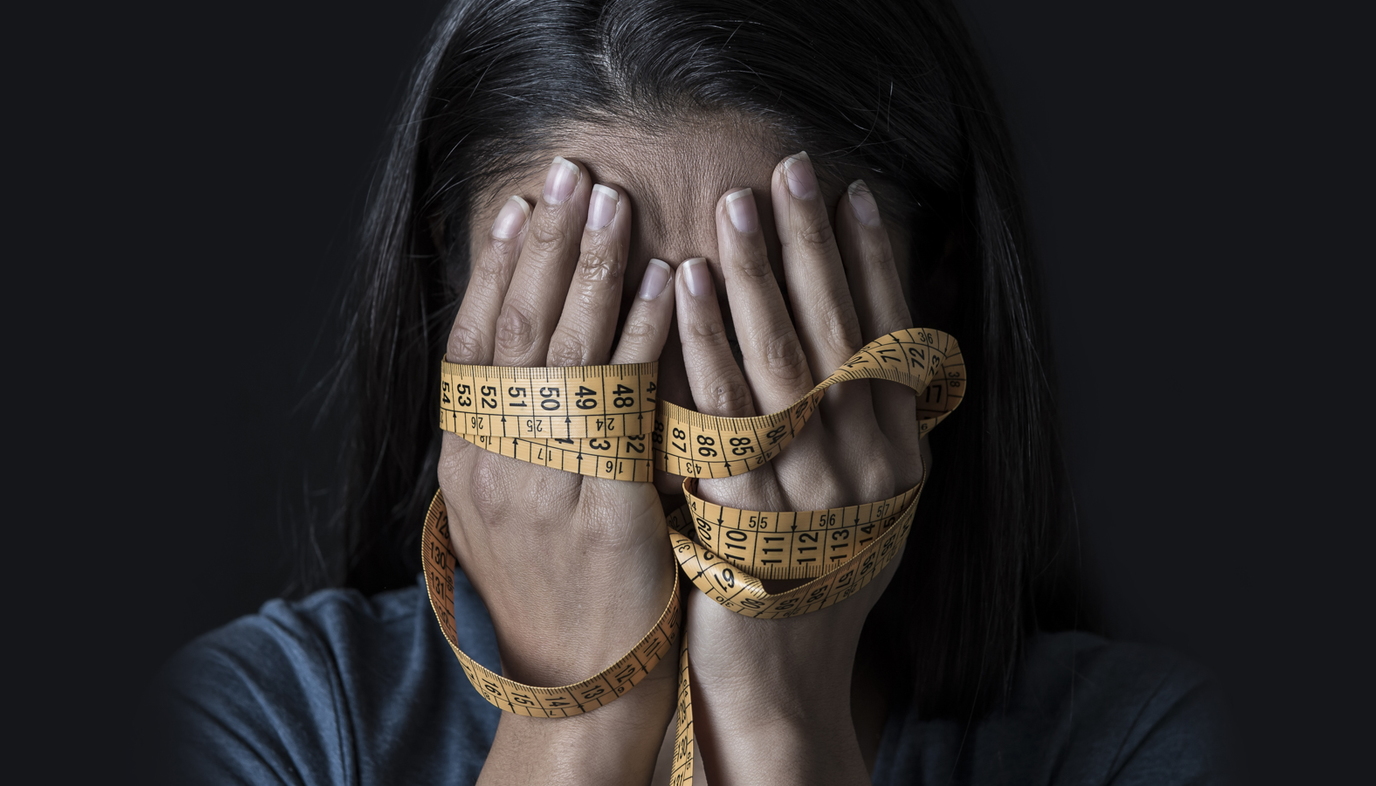
Eating disorders often develop in adolescence. Many teens are trying to have the perfect body or have an unrealistic perspective of how they look. Eating disorders may start as a diet or often young girls are fascinated with the idea of being anorexic. Anorexia is glamorized in the media. Teen girls may become intrigued by the idea of could they do it. Could they get that thin?
Sometimes, it is about being drawn to the idea of being anorexic, and sometimes it is about a diet that has turned into an obsession. There are many warning signs to look for if you think your teen may be developing an eating disorder. Keep in mind that you cannot determine this simply by looking at your teen. Not all teens suffering from eating disorders will appear underweight. This does not mean that there is not a reason to be concerned. Here are the signs and symptoms to look for if you think your teen has an eating disorder.

Eating Disorder Signs and Symptoms:
Dramatic weight loss, or being 15 percent under the normal weight for his or her height.
Obsession with weight, always talking about food or what they eat.
Stepping on the scale a lot.
Not eating in front of people. Many anorexics will say they have eaten when they have not.
Using the bathroom shortly after eating.
Problems with sore throats.
Smelling like vomit or flushing the toilet twice.
Broken blood vessels in the eyes.
Drinking excessive amounts of water.
Chewing gum constantly or eating sugar-free candy.
Being obsessive about what they eat, cutting out certain food groups, or eating only certain foods.
Drinking excessive amounts of caffeine or taking caffeine pills.
Exercising excessively.
Binge eating but not gaining weight.
Lies about being hungry.
Skips meals.
Keeps a food diary or exercise diary.
Use of diet pills or laxatives.
Hiding food (may hide food for binging or food that she pretended to eat).
Avoids social settings where she would be expected to eat.
Visiting ana/mia websites (ana and mia are nicknames for anorexia and bulimia). There are communities on the internet where people with eating disorders share tips and encourage each other to be anorexic or bulimic.
Frequently complaining about being cold or having to wear sweaters.
Not having a menstrual period.
Mood swings or irritability.
Fatigue and depression.
Not wanting to be friends with thin people; always having friends that are heavier than them. Or only having friends that are thin.

If you suspect that your teen is having problems with an eating disorder, it is important that you get them treatment. The longer your teen goes with this condition, the harder it is to treat. Talk to your doctor or pediatrician about treatment options. Also, talk to your teen about what you are seeing. She may secretly be waiting for you to notice and get her help. Don't be surprised if she denies there is a problem. Follow your heart on this. If you suspect there is a problem, there probably is. Get professional help. Treatment is available.
